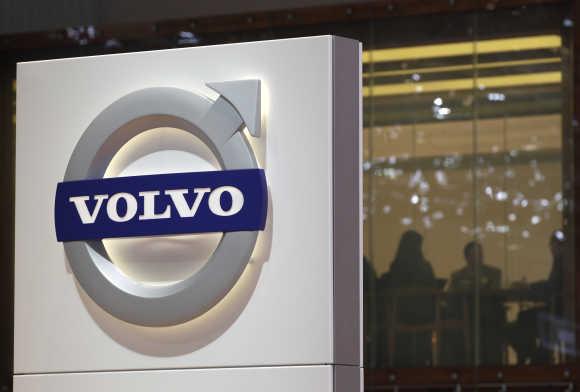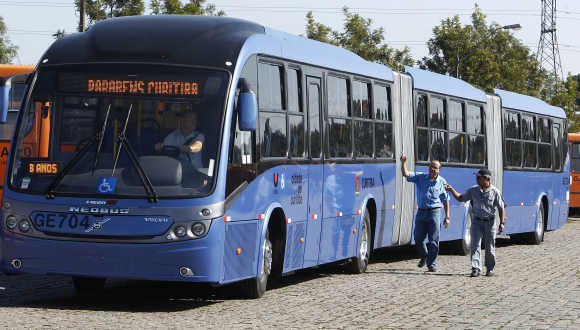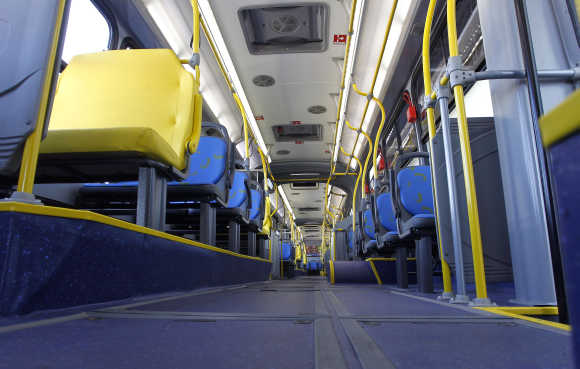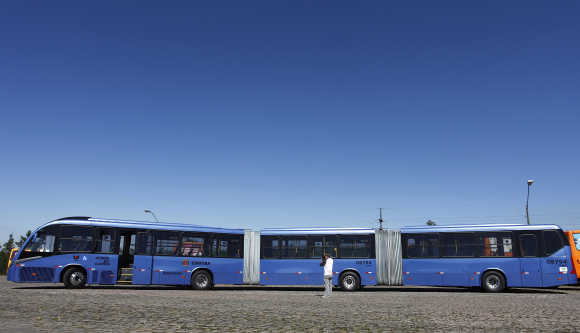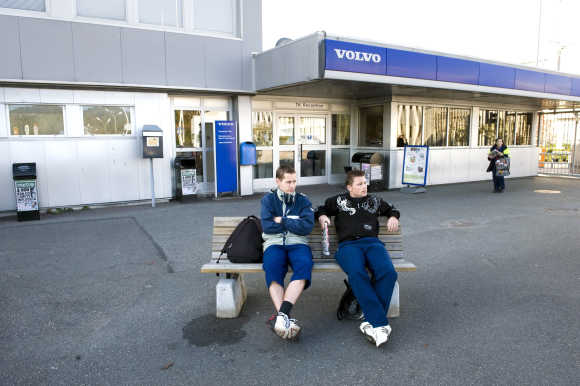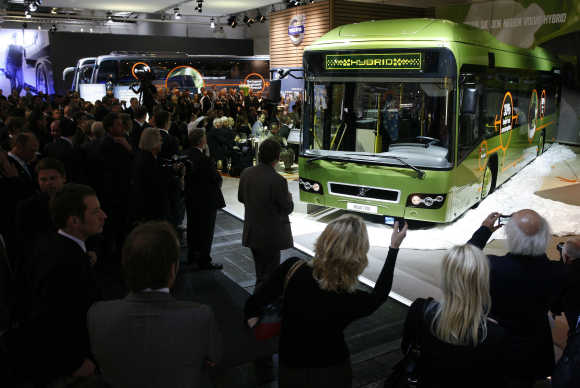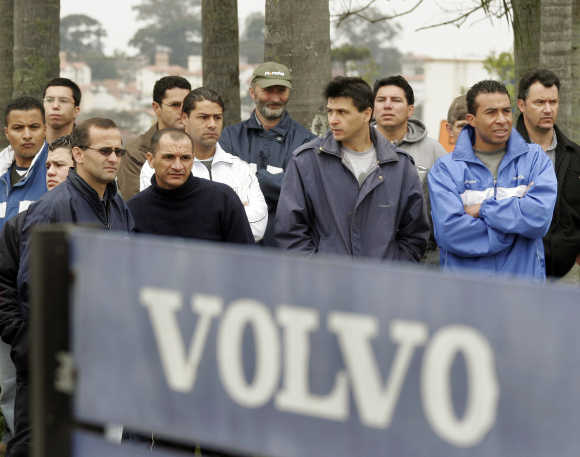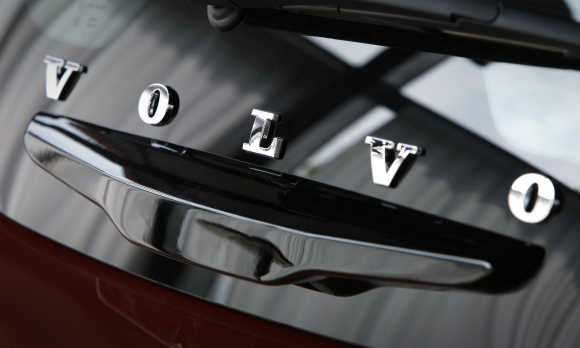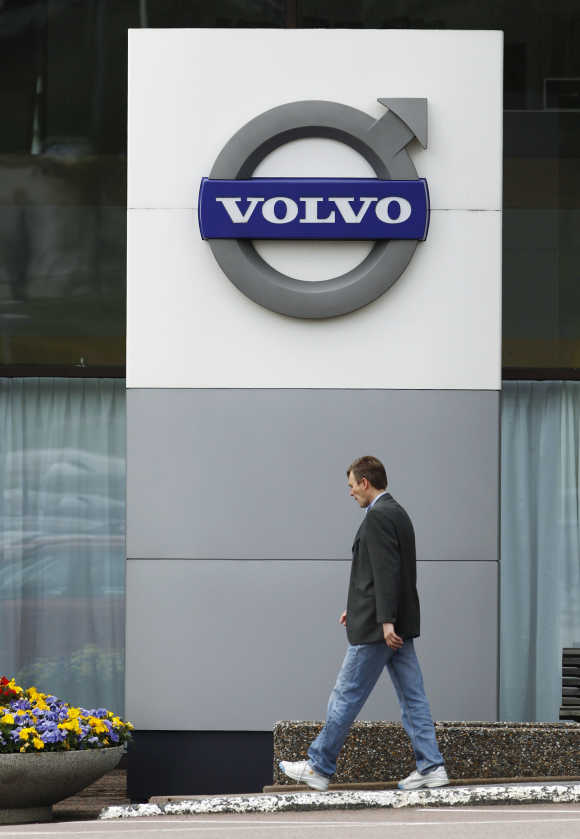 | « Back to article | Print this article |
King of luxury buses ups the ante in India
A decade after its entry into the Indian bus market in 2001, Volvo has quickly become a household name for comfort, safety and luxury.
Volvo Bus Corporation, the Swedish bus giant, which introduced several new concepts to the Indian bus traveller, has not only set a benchmark in the air-conditioned luxury bus market in India but is also the undisputed heavyweight champion in a market that is growing at 9-10 per cent annually.
The bus company has successfully introduced new concepts and products that were unheard of in India-such as the air-conditioned bus, inter-city coach built on a true bus chassis or the low-floor air-conditioned city bus or the multi-axle inter-city coach.
Click NEXT to read more...
King of luxury buses ups the ante in India
Today, Volvo's City Buses ply across 12 cities and its coaches across every key route in the country. "Ten years ago, the luxury bus did not exist in India. But, when people travel in Volvo buses today, they find similarities with air travel.
"At each step, we worked towards bringing in a change that would re-define the way people travel and the way they see a bus," says Akash Passey, Senior Vice President, Business Region International, Volvo Bus Corporation.
The luxury bus market is divided into two parts: The chassis market, which produces about 250 units per month on which luxury coaches are made locally; and fully built luxury coaches, of which Volvo sells 60 units per month.
Click NEXT to read more...
King of luxury buses ups the ante in India
In total, the market size is at around 3,700-4,000 units and growing at about 9-10 per cent annually with Volvo holding onto a 75 per cent share.
Volvo's buses are priced in the range of Rs 70 lakh to Rs 1 crore (Rs 10 million) and the company is estimated to have sold Rs 700 crore (Rs 7 billion) worth of buses in the 2011 calendar year in India, according to industry estimates.
The serious intent with which Volvo has sized up the Indian market-and the manner in which it has raised the bar even further for bus makers-can be seen by the slew of new products it has introduced in the country.
Click NEXT to read more...
King of luxury buses ups the ante in India
First, is the 9400 PX, the country's first 14.5 metre long luxury coach with the highest seating capacity, offering a steered axle for better manoeuvrability. It is also equipped with more luggage space, a pantry and a lavatory. Second, is the country's first multi-axle city bus, the 7400 XL offering 55 per cent more occupancy while reducing emissions by 30 per cent, and equipped with a steered axle.
Third, is the 9100 coach, a global introduction for Asia, from Asia and called the Asia Bus thanks to significant R&D contributions from its Indian research centre in Bangalore. The fourth is a hybrid bus, Volvo 7700, which is still to be launched commercially in India.
Click NEXT to read more...
King of luxury buses ups the ante in India
After selling about 5,000 buses in the last 10 years, Volvo is now outlining greater ambitions for itself. "Actually, the thought is to have much higher pace than what we had in the last 10 years," says Volvo's Passey.
"We have the experience behind us and a complete bus company in place. We have a mature customer base and a large number of service support points across the country. "Finally, we have a brand in place, which is very important. I think, these are five key things, which gives us a possibility to have a bigger stepping stone in the future," he adds.
Still, Volvo will have to watch its rear view mirrors carefully.
Click NEXT to read more...
King of luxury buses ups the ante in India
"Going forward the journey is going to be very tough for Volvo as it is not a lone player in the luxury bus market. Tata Motors and Ashok Leyland are set to penetrate the luxury bus market. Mercedes Benz has some very good products. How best service and features each of these players offer will decide their growth," says Abdul Majeed, analyst with PwC India.
Tata is hot on the heels of Volvo with its own bus products. "We did not have presence in the fully-built luxury bus market which we intend to enter and capture with the launch of Tata Divo," says Debasis Ray, spokesperson, Tata Motors.
Click NEXT to read more...
King of luxury buses ups the ante in India
"We shall position the Divo as an epitome of luxurious travel in the minds of the passengers. The operators will see it as a truly international product, which is better than competition in all respects and comes at an Indian price."
Tata Motors has sold around 15 Divo buses so far and is well entrenched in the city bus market, thanks to its Marcopolo JV. Mercedes Benz, one of the most recognised automotive brands in the world, has also set its sights on the Indian market with its 2-axle luxury inter-city coaches in 2008 and multi-axle coaches in 2010. It has recently entered the city bus segment as well.
Click NEXT to read more...
King of luxury buses ups the ante in India
This seems to have spurred Volvo into a storm of activity. The company is in the process of expanding its manufacturing capacity at an investment of Rs 400 crore at its Hoskote plant near Bangalore.
"We are hoping to produce 1,000 buses from our plant in Bangalore in 2012 and raise it to around 2,500 buses in 2013- 14. Our aim is to export at least 25 per cent of our volume from India in five years," said Passey.
Volvo's growth story is not just limited to India alone. In order to meet the growing demand for luxury buses in the Saarc region, West Asia and South Africa, the company is developing its Indian operations as the fourth global bus hub.
Click NEXT to read more...
King of luxury buses ups the ante in India
By 2015, Volvo aims to make India amongst the top three in the world. It plans to increase its contribution from India from the current 5 per cent to about 15-20 per cent of the global volume. Other than tenacious competitors who have decided to waded into its market, Volvo has other things to worry about. The current slowdown, for one, has impacted sales.
"The fresh order booking is slowing down by about 10-15 per cent, but the pain will not be felt immediately," says Passey. Then, according to data from the Society of Indian Automobile Manufacturers, the bus industry will have negative growth of 5 per cent in 2012-13. "This is first time that the overall market is shrinking," added Passey.
All things considered, this should be a temporary hiccup in Volvo's long-term plans to continue dominating the Indian bus market.
